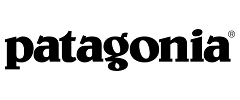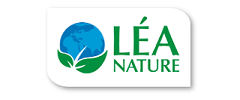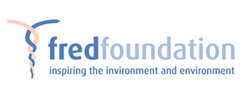MEPs confirm wide-ranging phthalate toy ban
Industry should stop using PVC althogether. Safe alternatives are available. Text in English and Dutch
12.07.2005 |Sascha Gabizon
- Environment Daily 1914, 05/07/05
The European parliament has confirmed an EU deal to ban six phthalate softeners in PVC toys and childcare articles that can be placed in children's mouths. The council of ministers will now rubber-stamp the agreement, bringing the restrictions into force sometime next year.
MEPs voted by an overwhelming majority on Tuesday to back a compromise hammered out with the council last month (ED23/06/05).
The ban will apply to DINP - by far the most commonly-used phthalate in PVC toys - plus DIDP and DNOP. Three other phthalates - DEHP, DBP and BBP - will be banned outright in all toys, regardless of whether they can be put in children's mouths.
Veterans of the seven-year-plus lobbying battle over phthalates in toys all reacted quickly to the vote. Softener industry trade body Ecpi blasted the development as an "entirely political decision that misuses the precautionary principle."
"Banning a substance [DINP] which has been scientifically risk assessed as safe, thereby forcing manufacturers to use alternatives about which far less is known, does nothing to protect the health of children", director David Cadogan said.
Meanwhile an exasperated EU toy industry said it faced uncertainty over how to replace the phthalates: "what criteria can we use to determine that substitute chemicals will not be challenged on health and environmental grounds in the future?" Teemu Lehtinen of trade association Tie asked.
Anti-phthalate campaigners were jubilant: Tuesday's vote was "a decision which ensures the protection of the most vulnerable consumers," Jim Murray of EU consumer body Beuc said. "Dangerous chemicals do not belong in toys."
Others tried to steer attention to other products made from phthalate-softened PVC: "[EU] laws are still not tight enough to prevent this plastic damaging our health and environment," said Nadia Haiama-Neurohr of Greenpeace.
"If industry wants to be as responsible as it claims to be, it should stop using soft PVC altogether, not only in toys but also in other products such as medical devices, flooring and food wrapping. Safe alternatives are available," added German Green MEP Hiltrud Breyer.
Karolina Ruzickova
Health Care Without Harm Europe
Chlumova 17
130 00 Praha 3, Czech Republic
phone: +420 222 78 14 71
fax: +420 222 78 28 08
Chemicals are used in children's toys
The European Parliament has voted to permanently ban the use of a group of chemicals to soften children's toys following health concerns.Phthalates have been linked to damage to the reproductive system, and an increased risk of asthma and cancer. They are also used in the manufacture of lubricants and solvents, and are found in cosmetics, medical equipment, paints and packaging. A temporary ban had been in place in Europe since 1999.
If children chew on toys containing phthalates they can absorb the chemicals through their mouths. Toy manufacturers have criticised the proposed ban, pointing to an EU risk assessment that said the chemicals were safe. However, a study by New York's University of Rochester, published in May, found exposure to the chemicals was linked to a higher risk of genital abnormalities in baby boys. Previous research on animals had suggested phthalates may damage reproductive development by disrupting hormone levels. John Bowis, a British Conservative MEP, said: "Nobody is going to be killed by chewing them, but potentially there is a carcinogenic threat.
"That is why, under the precautionary principle, with scientific advice, one takes action."
MEPs voted to ban the use of six types of phthalates in children's toys. Three types were banned outright, and the others will be barred from use in toys which can be put in the mouth.
The European Commission will issue guidance on how the ban is to be implemented.
It is also to conduct a review into the use of phthalates in other products, in particular medical devices. MEPs also approved a review into the use of fragrances in children's toys.
Helen Lynn
Campaigns and Health Co-ordinator
Women's Environmental Network
PO Box 30626
London E1 1TZ
t: 00 44 207 481 9004
f: 00 44 207 481 9144
e: health@wen.org.uk
Volkskrant. Dinsdag 5 juli 2005.
Europa bant weekmakers uit speelgoed
ANPSTRAATSBURG - Weekmakers of zogeheten ftalaten, die kinderspeelgoed zachter maken, zullen vanaf begin 2007 volledig verboden worden. Dat heeft het Europees Parlement dinsdag met grote meerderheid besloten.
Ftalaten in bijvoorbeeld bijtringen voor baby's kunnen kankerverwekkend zijn. De Europese ministers van Milieu praten al jaren over een verbod, maar sommige EU-lidstaten willen bepaalde categorieėn toch vrijstellen, bijvoorbeeld voor speelgoed dat is bestemd voor kinderen van drie jaar of ouder.Het Europees Parlement, dat volledig bevoegd is in deze kwestie, heeft die verruiming echter van de hand gewezen. Na invoering van Europese regelgeving in alle lidstaten zullen de weekmakers vanaf 2007 niet meer gebruikt mogen worden in nieuw kinderspeelgoed.Volgens de Vlaamse groene europarlementariėr Staes, die namens het Europees Parlement meeonderhandelde over de ban op ftalaten, krijgt de industrie wel de mogelijkheid om met gezonde alternatieven op de markt te komen. VVD-europarlementariėr Maaten vraagt zich echter af of die alternatieven ook wel volledig veilig zijn. Daar zullen we dan later nog eens over moeten praten.

































